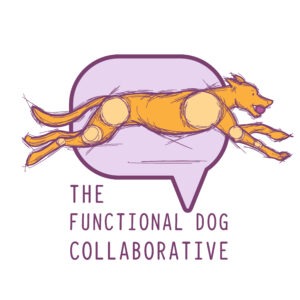Response to the “For All Dogs” Program
A primary goal of the Functional Dog Collaborative (FDC) is supporting breeders in breeding healthier and more behaviorally resilient dogs. We believe collaboration with animal shelters is an important part of that work. However, we find SPCA Tampa Bay’s “For All Dogs” program, a partnership between the shelter and a puppy broker and pet store chain, concerning.The “For All Dogs” program will bring retired breeding dogs and “imperfect” puppies to the shelter via the new partnership. In clarifying the goals of the new program, SPCA Tampa Bay CEO Martha Boden has explained that bringing in dogs frequently sought by the...
Read morePosition Statement on Kennel-Based Breeding Programs
The Functional Dog Collaborative (FDC) recognizes that well-run breeding programs come in a variety of shapes and sizes. Blanket statements about kennel-based breeding programs leave no room for nuance and fail to distinguish between poorly managed “puppy mill” operations and careful professional programs, such as some guide and assistance dog programs, that use kennel set ups for breeding, rearing, and training with great success. When it comes to the conditions in which dogs are bred and raised, the priority of the Functional Dog Collaborative (FDC) is, first, the physical and behavioral health of the dogs in the program, closely followed...
Read morePosition Statement on Shelters and Dog Breeding
The Functional Dog Collaborative (FDC) has been asked: Do you think shelters should breed dogs? In short, no – FDC is not calling for animal shelters to breed dogs. The FDC does seek collaboration between shelters and breeders at the community level. Shelters are often an important and trusted resource for animal-related education, and have an interest in seeing puppies have their best possible start in the world, so that they are less likely to pass through a shelter later in life. Therefore, the FDC believes that collaboration between shelters and the breeders in their communities can increase the welfare of breeding dogs and their...
Read morePosition Statement: Support for Adopting Shelter Dogs
The mission of the Functional Dog Collaborative (FDC) is to support the ethical breeding of healthy, behaviorally sound dogs. We have been asked: Don’t you want people to adopt shelter dogs?The answer? Yes, we do want people to adopt shelter dogs! We see shelters and rescues as an important source of both family pets and working dogs, and it is important to us that homeless dogs find homes. In promoting responsible breeding practices, the FDC is not proposing an alternative to finding dogs at shelters. Instead, the FDC is working to provide alternatives to the use of high volume breeding facilities with questionable methods, often called...
Read morePosition Statement: Outcrossing
The Functional Dog Collaborative (FDC) supports periodic outcrossing as a normal part of maintaining a purebred population. Genetic diversity is lost every generation in a closed population [Sources of variation – An Introduction to Genetic Analysis]. This means that inevitably, breeds with closed studbooks will lose genetic diversity over time. The loss will be at different rates for different breeds and can be slowed, but not stopped or reversed, by specific breeding practices, such as avoiding over-breeding particular sires (“popular sire syndrome”). A paper describing simulation studies of dog breeding suggests that the best approach to replacing lost diversity is...
Read morePositon Statement: Cross-Breeding
The Functional Dog Collaborative (FDC) supports responsible cross-breeding of dogs. Many pet owners today are interested in acquiring a crossbred dog. While many of them do not have enough information to know what they’re getting (as is also true of many owners seeking purebred dogs), many do. It is not true that a breed exists for every need, as evidenced by the demand even among well educated pet owners and dog sports enthusiasts for crossbred dogs. Additionally, crossbred dogs, on average, have lower risk of genetic health issues than dogs from many popular breeds, which is an attractive trait to many...
Read morePosition Statement: Genetic Diversity
The Functional Dog Collaborative (FDC) does not set a hard line at which genetic diversity for a particular breed is “too low.” We do encourage breeders and breed clubs to consider low genetic diversity as a potential contributor to breed-specific problems, particularly in breeds that have been assessed as having less genetic diversity than average compared to a large number of other breeds. In a closed population, diversity will be lost in every generation. In naturally breeding populations, diversity is maintained mostly by migration in from other populations, and by recombination of existing variation (only possible if there is variation...
Read more

